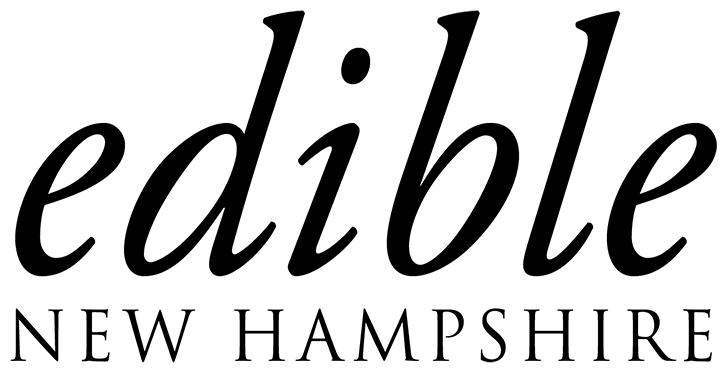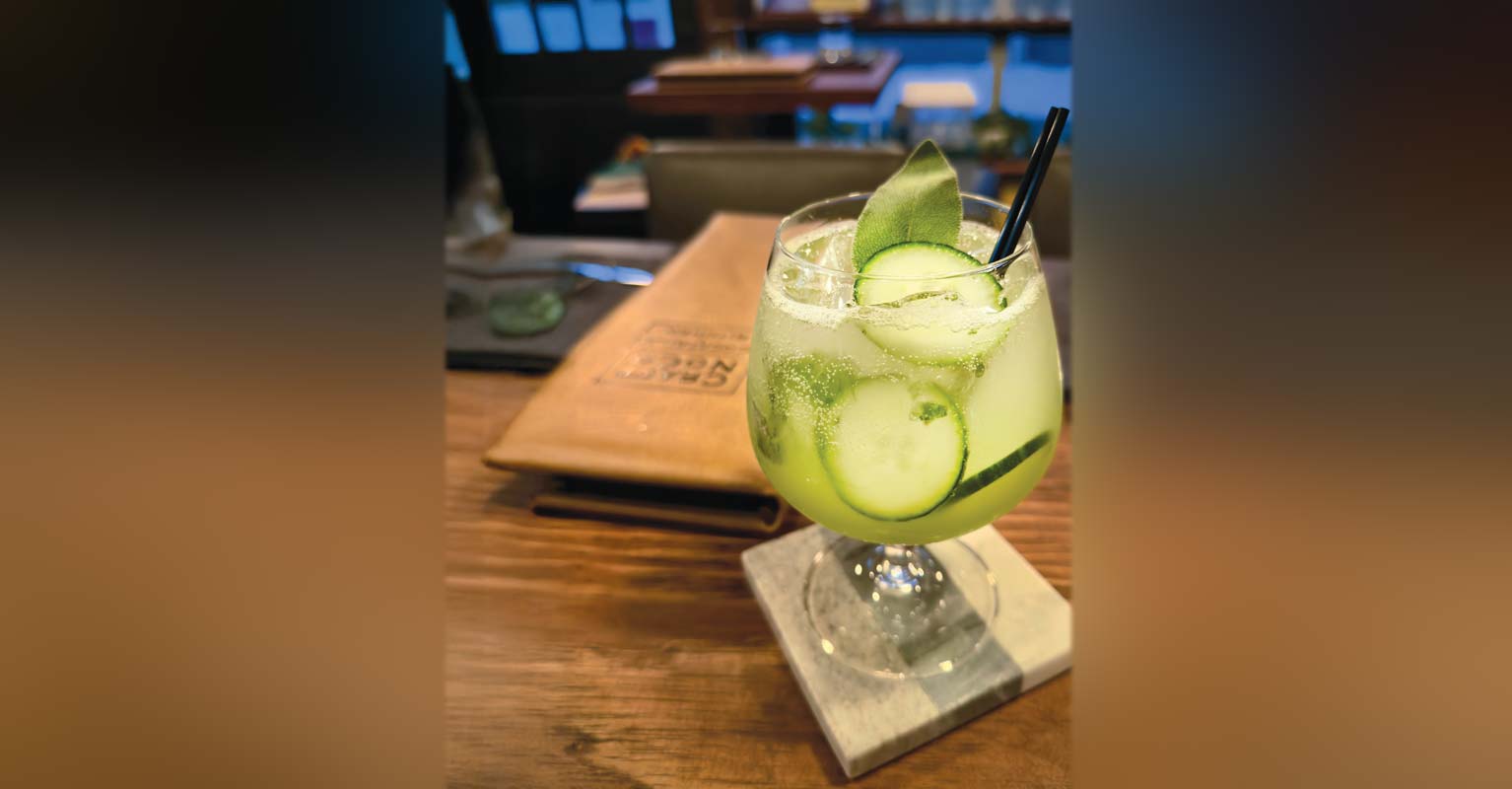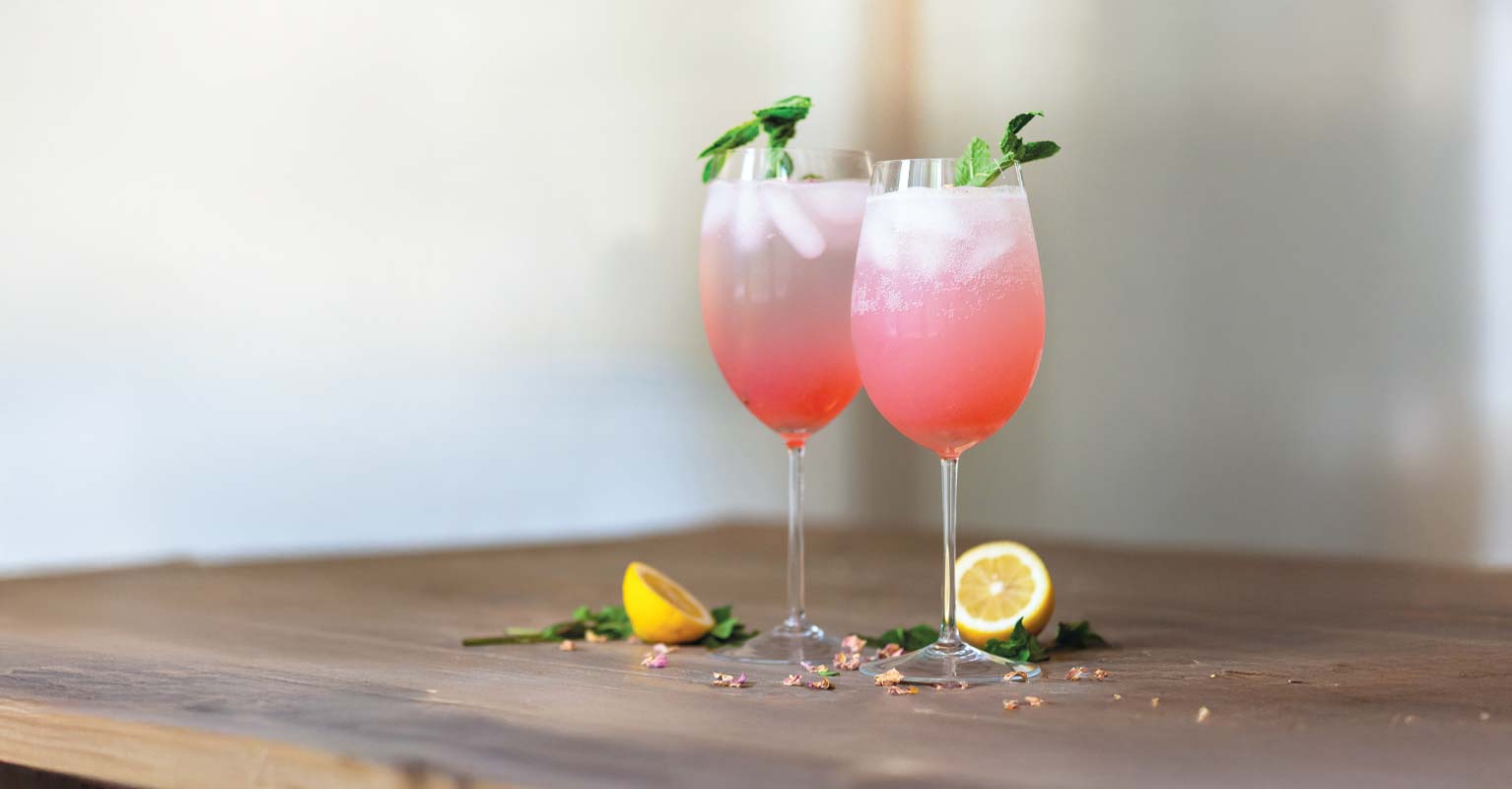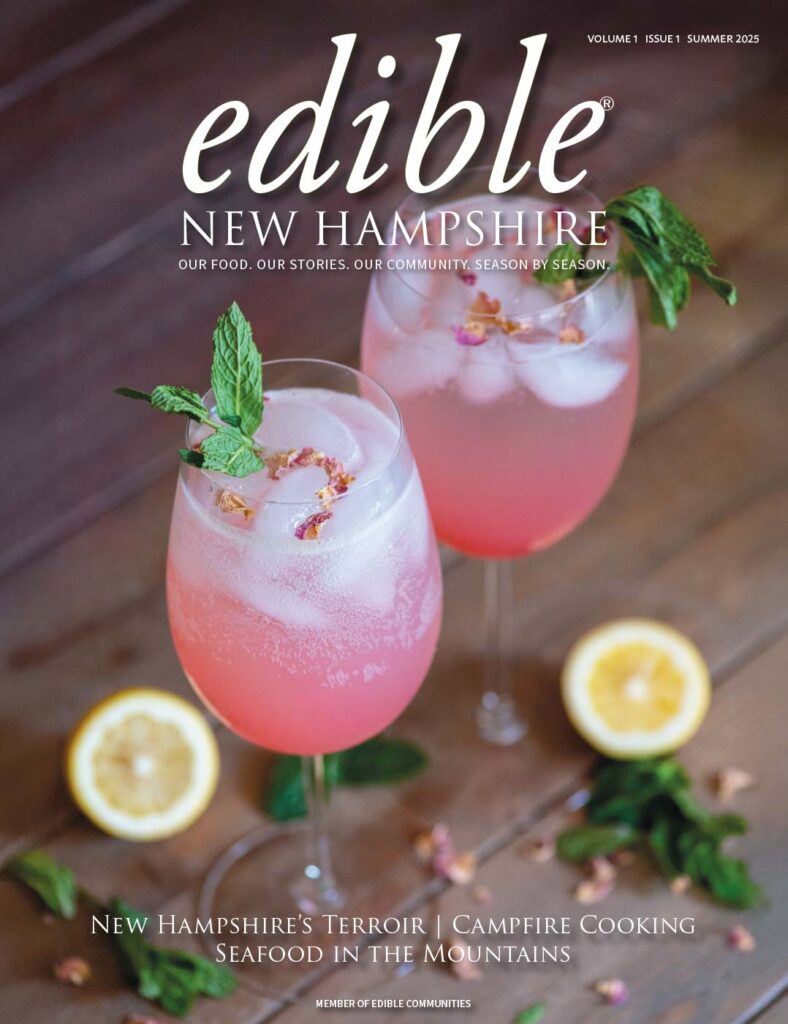In Issue #1: Summer 2025
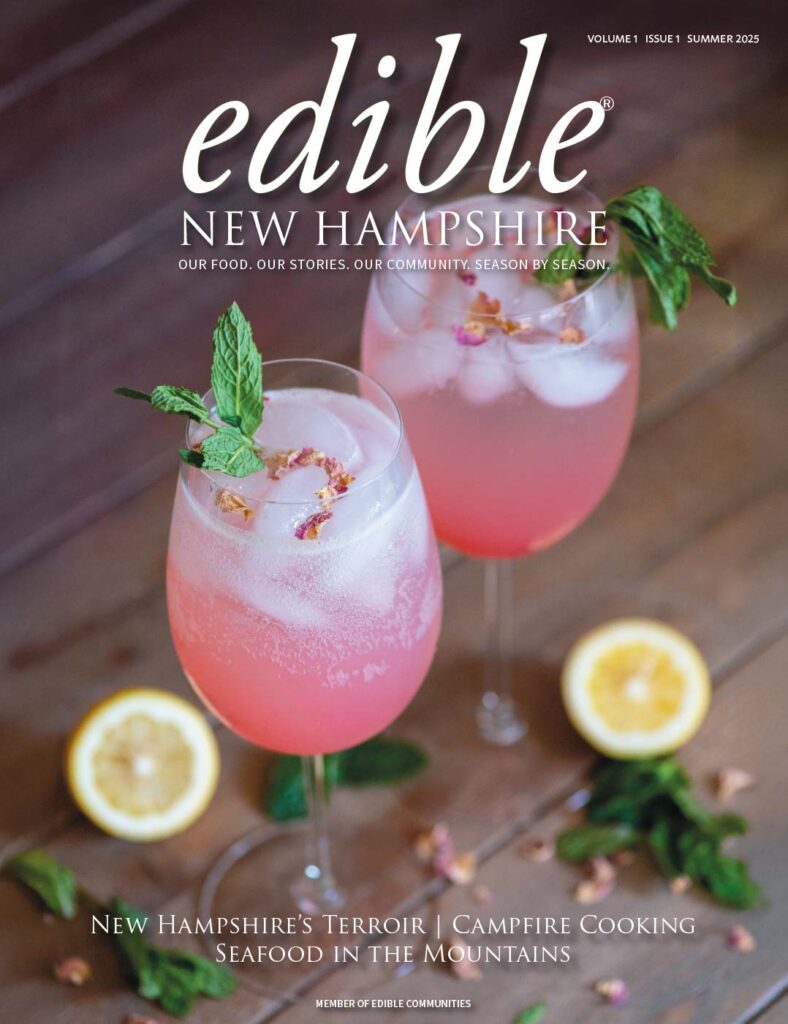
Rhuby Rose Refresher. Cover image by Jaime Connolly.
From the Publisher
Our goal is to inspire you to slow down, explore, savor, create, and connect with the people and land nourishing our communities, bodies, hearts, and souls.
IN THE MID-1950S, my great-grandparents built a restaurant on Route 125 in Plaistow that became a mainstay and one of the town’s oldest family-run businesses until its closure. Many of my childhood memories are centered in that restaurant. The smells. The sounds. The laughter. The bickering. My grandmother elbows deep in cabbage as she mixed coleslaw by hand, and the hours spent folding cloth napkins together at her kitchen table. The preparation, cooking, consuming, and business of food runs deep in my family’s veins. It has evolved over the years, but the importance of quality food is in my blood.
There appears to be an imbalance in how we, as Americans, relate to food. We rely on commercialized, processed food products to fill our stores and bellies. Our tables are centered on convenience and speed rather than flavor and experience. We live fast, full, busy lives, and yet I’ve noticed a shift. People increasingly and intentionally slowing down, reconnecting to the land, building community, healing and protecting our local food systems. Neighbors and friends advocate healthier, more accessible food options for all. More and more farmers employ sustainable, regenerative agricultural practices. The buying and sourcing of local, seasonal food is a priority for professional chefs and home cooks.
We gather and celebrate around food, mingling with drinks in hand. Relationships are built while breaking bread or over a cup of coffee. Lifelong memories formed as we bake from scratch or plant a kitchen garden with our children. Food is medicine for the body, heart, and soul. A shared experience for us all no matter what we believe or where we come from.
Edible New Hampshire tells the stories of and connects you to the bounty of our beautiful state. Each quarter we will bring you closer to the people at the heart of our locally cultivated food system. We will share profiles of the women and men tending our land and waterways, feature small businesses at the heart of our cities and towns, and highlight the innovations modernizing our food system while honoring and learning from the past. Our goal is to inspire you to slow down, explore, savor, create, and connect with the people and land nourishing our communities, bodies, hearts, and souls.
Thank you for joining us on this journey.
Jessica Lague
Publisher and Editor in Chief
From the Editor
Over the years since I arrived in New Hampshire, the world of food and agriculture here has become smaller in the sense that everything has started to connect in a synergistic web. It is my great joy to continue to discover these connections with all of you, and bring you closer to the beauty that is the New Hampshire food system.
BACK IN MARCH, I attended a farm-to-bowl fundraiser hosted by Mount Washington Valley Eaters and Growers (MWVEG) at the Local Grocer in North Conway. All proceeds supported their Food for All “Local Food Access Fund.” Seated next to my partner, Nate, and across from our friends, we ate homemade soups out of bowls made from New Hampshire potters along with bread from a bakery not three miles down the road. Outside, a spring “gotcha” storm threw snow at the windows. Still, we made the trek and gathered around food, around a cause. It was New Hampshire distilled.
I moved to North Conway at the end of 2022 after a four-year stint in Portland, Maine, where I was within walking distance from some of Maine’s finest eateries—surrounded by farms beyond the outskirts of town. Moving away from what Bon Appétit deemed “2018 Restaurant City of the Year” made me a bit of a cynic, but New Hampshire has surprised and humbled me.
Over the last few years since I arrived in New Hampshire, I’ve visited farmers’ markets across the state, buying goat cheese infused with finely chopped chives and tasting fresh peaches that made me want to jump up and down. I published an ode to the Mount Washington Valley Farmers Market, helped set up maple syrup lines to tap trees, joined a CSA. The food and agriculture world of New Hampshire became smaller in the sense that everything started to connect in a synergistic web. It is my great joy to continue to discover these connections with all of you, and bring you closer to the beauty that is the New Hampshire food system.
As you read this summer issue, we hope you will de-silo inland seafood with us, learn about chaga mushrooms, reminisce on your first time cooking over a fire, make a versatile rhubarb simple syrup, and so much more.
After an eight-year hiatus, Edible New Hampshire is back to celebrate the food, drink, land, and people devoted to building a vibrant, sustainable food system in the Granite State. I tip my hat to the publishers and editors across Edible Communities—their work inspires and informs how we move forward.
Thanks for being here.
Lea Camille Smith
Editor
LAND ACKNOWLEDGMENT
Edible New Hampshire recognizes the unceded, ancestral homelands (N’Dakinna) and waterways of the Pennacook, Abenaki, and Wabanaki Peoples, past and present, who have lived in relationship with the aki (land), nibi (water), lolawikak (flora), and awaasak (fauna) for thousands of years as the original stewards of this region. This publication commits to building greater awareness of and appreciation for the traditional ecological knowledge, wisdom, and experiences of New Hampshire’s first peoples as an essential part of the health and vitality of our local food system.
Stories

Cooking Around the Campfire
The campfire is a primitive throwback to hunter-gatherer days.
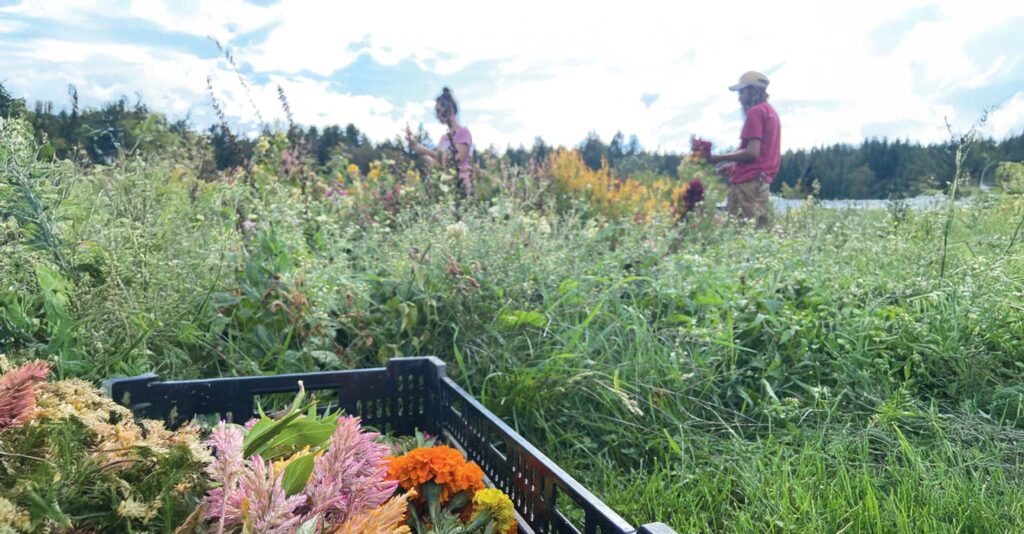
Agritourism: Celebrating Food & Community on the Farm
Capturing the creative ways farms are providing more opportunities for guests to learn about the land they steward
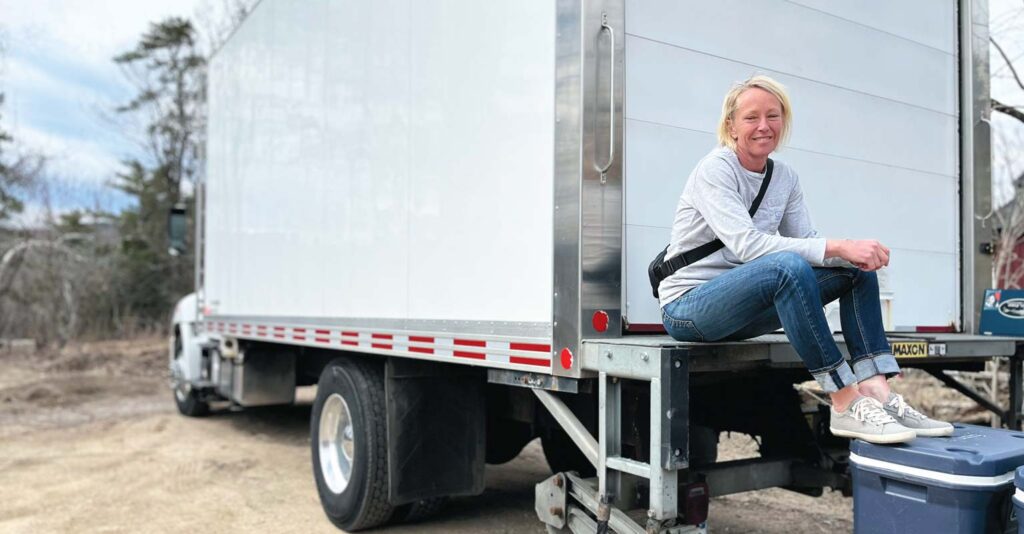
Seafood in the Mountains: The Boys Fresh Catch Shortens the Gap Between Land and Sea
Plachowicz greets her customers the same way you or I might say hello to a friend at the local coffee shop
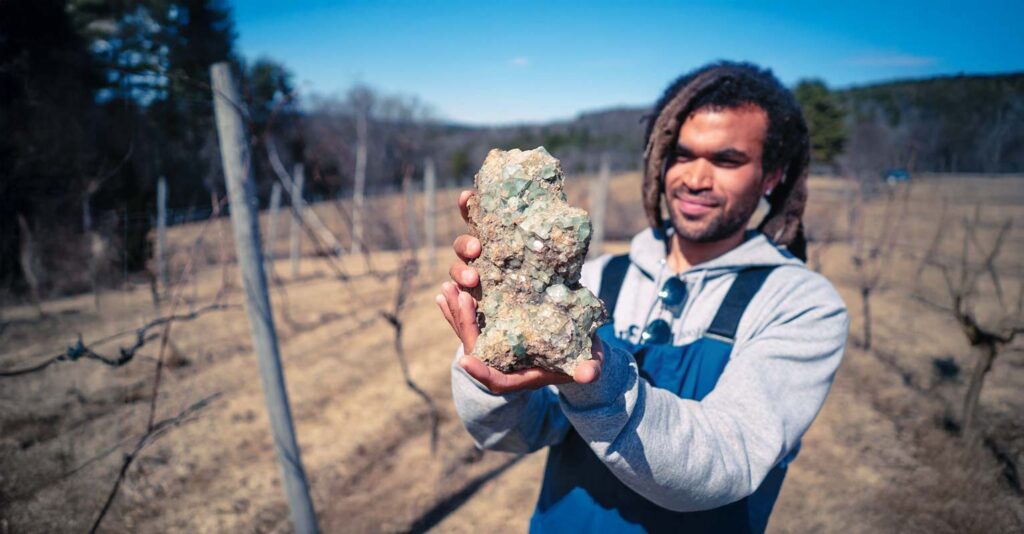
Not Otherwise Known: NOK Vino Captures New Hampshire’s Terroir
NOK Vino follows the best flavors out there and expresses the landscapes of New Hampshire in an unfettered way.
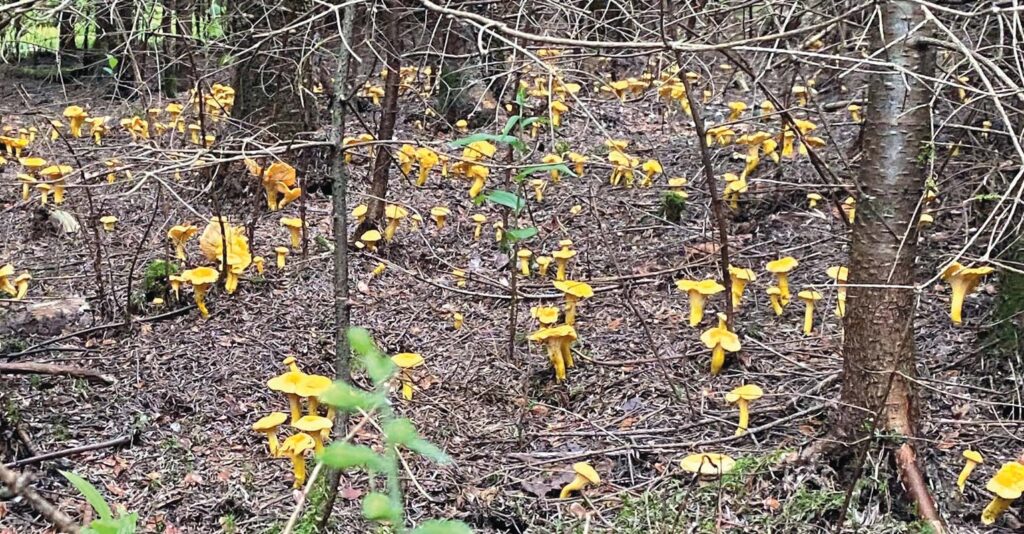
Where The Wild Things Are: A Retired Conservation Officer Makes Foraging His Passion Project
My definition of excitement is first looking at a new hillside peppered with yellow mushrooms
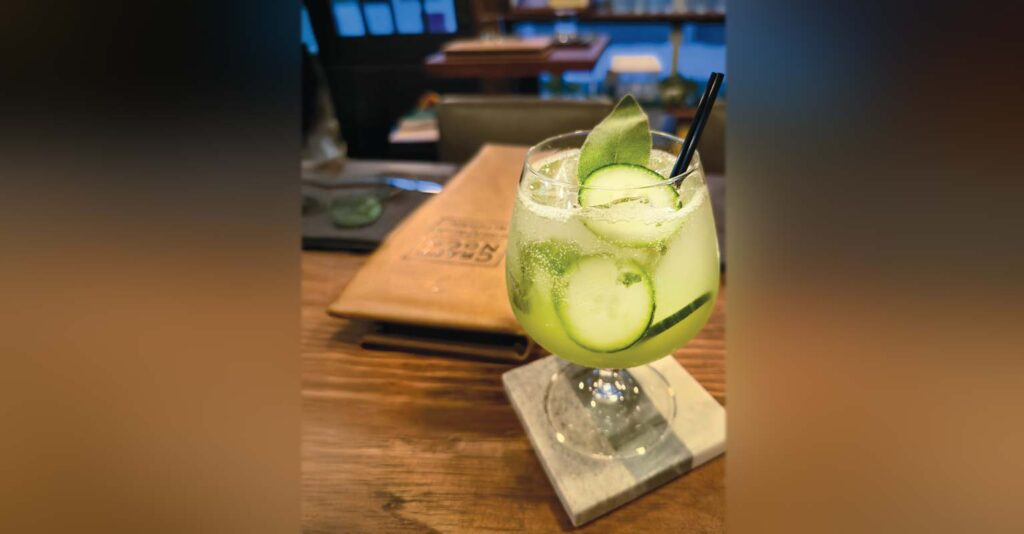
Craft Noco Sees Us
A dozen-table craft cocktail bar in North Conway has a seat for everyone
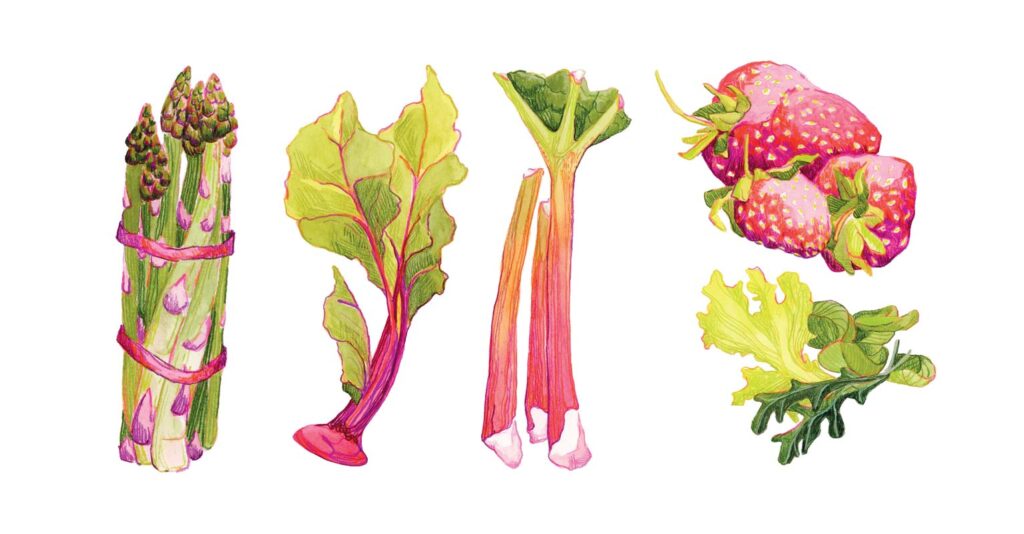
In Season: June Edition
Brush up on your knowledge of some of June’s bounty
Recipes
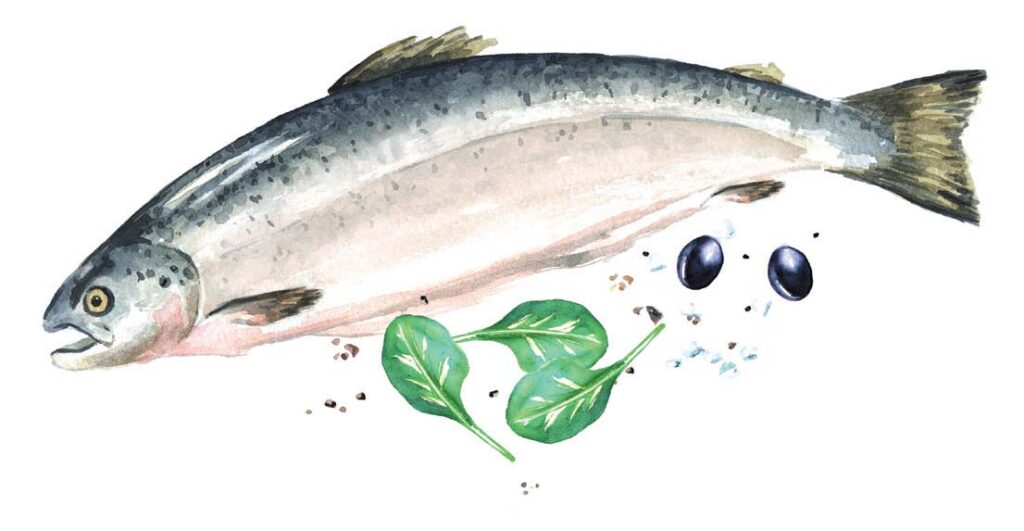
Fire-Grilled Roasted Greek Salmon
Cooking by campfire delights our senses with the flames’ snaps, crackles, and pops.
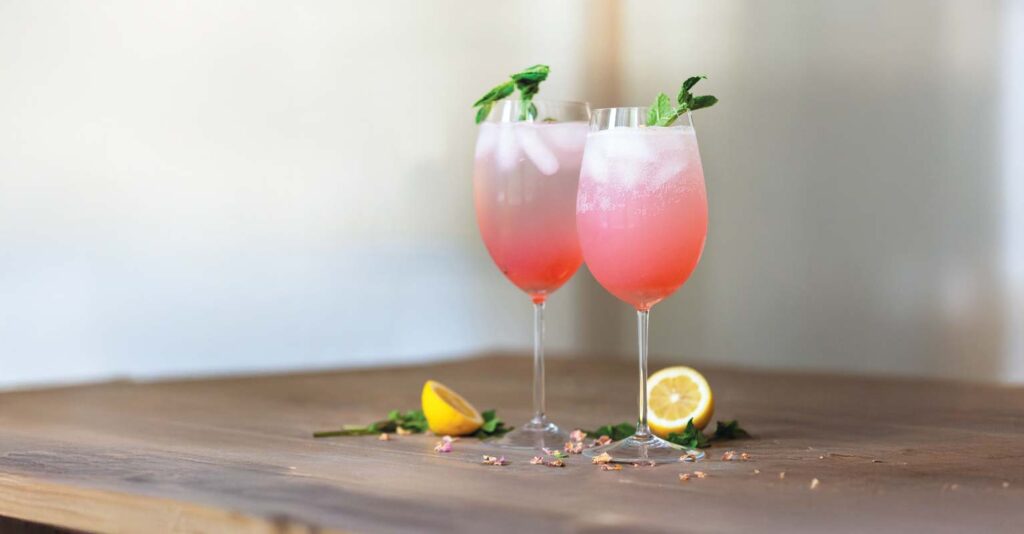
Rhuby Rose Refresher
The summer heat and vodka seltzers are a perfect pair.
